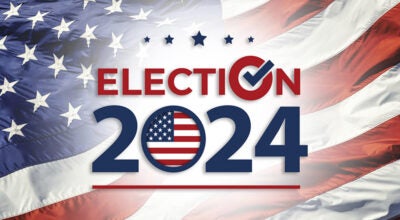DA: Electronic bingo’s illegal
Published 10:47 pm Monday, May 25, 2009
Local charities considering partnering with outside gaming companies to install electronic bingo machines might want to think again.
Covington County District Attorney Greg Gambril said Friday he believe the slot machines altered to play bingo and that anyone who installs them in Covington County will be prosecuted, either by him or by the governor’s task force on illegal gaming.
“There are some forms of electronic bingo that are legal,” Gambril said. “But those are more akin to the game of bingo as played on paper.”
Machines that are converted from slot machines to bingo are not legal, Gambril said. And there are at least three companies that would like to place machines in Covington County.
Currently, charities that would like to use bingo as a way to raise money do so legally under a local bill approved by the legislature in 1993 and with the blessing of Constitutional Amendment 565, approved by statewide vote in 1994.
The 1993 legislation states that the sheriff can issue $100 bingo permits to charities that meet certain criteria. The 1994 amendment gives the county commission authority to promulgate rules governing bingo.
In the 15 years since that was approved, the commission has written any rules. But faced with a budget crunch and the prospect of getting some kind of tax or fee from gaming interests, the county plans to set rules now. The issue was on the agenda of its May meeting, but removed because, the county attorney said, commissioners had not had time to review them. The Star-News has made three requests for copies of the rules, but each request was denied.
One commissioner has confirmed that at least three gaming companies have talked with the county about placing electronic machines here, and members of two charitable boards have confirmed that they have been approached about partnering with one of the companies.
At least one of those companies met recently with Florala Mayor Robert Williamson about the possibility of gaming inside Florala’s corporate limits, the mayor confirmed last week.
And while those gaming interests have been tip-toeing around Covington County, Gambril said questions about the legality of the proposed operations have only come hypothetically,
“The only persons that have approached me have come in the form of a hypothetical,” he said. “My answer has always be a very solid ‘yes.’ We will prosecute.”
The issue comes down to a very simple question of the law, he said. He’s addressed that issue in a letter sent to county and municipal leaders and this newspaper on Friday.
“There is nothing about our constitutional amendment legalizing bingo that makes these machines legal. Nothing,” he wrote.
“I have reviewed the law. I have seen the illegal slot machines that the gambling proponents are trying to pawn off as “electronic bingo” and find them nearly identical to the scores of slot machines that the ABC Board seized in our own county several years ago.
“I can tell you first had that what is being pawned off as a way of raising revenue for our community, as a benefit to charity, or as legal under our constitutional amendment allowing bingo is nothing more than a wolf in sheep’s clothing. It is gambling pure and simple and if that is what somebody wants in Covington County, then they need to stand up and say they want to legalize gambling to raise revenue for our municipalities and our county instead of trying to bring in modified ‘one-armed-bandits’ with a bingo card taped to one corner of the screen.’
“With that said, anyone found in possession of an illegal slot machine will be prosecuted by either my office or Gov. Riley’s (Gambling) Task Force,” Gambril wrote.
Those prosecuted and found guilty are punishable by up to one year in prison per machine.
“Some people have no problem seeing our county become Biloxi, Victoryland or the Poarch Creek Reservation,” Gambril stated. “These people need to take a step back and see what Covington County has: a peaceful and God-fearing county that has hard working citizens and amazingly high quality public schools.
“We can do better than this,” he wrote. “Since when do we have to resort to measures that break both laws of Alabama and the laws of morality to fund our government?




